overleaf template galleryLaTeX templates and examples — Recent
Discover LaTeX templates and examples to help with everything from writing a journal article to using a specific LaTeX package.

La bandera de Estados Unidos de América (EUA), según Wikipedia, ha sufrido 26 modificaciones desde que se declaró la independencia en ese país el día 4 de julio de 1776. El diseño de la bandera inicial, en apariencia, se inspiró en el escudo de armas de la familia del General George Washington. No sería sino uno año después de declarada la independencia, el 14 de junio de 1777, que comenzaron a añadirse estrellas a la bandera y que aparece el cantón azul que hoy la caracteriza. El actual diseño fue realizado por el diseñador gráfico Robert G. Heft cuando tenía 17 años en 1958 como un proyecto de clase de la escuela secundaria. Este diseño final fue aprobado por orden ejecutiva el día 21 de agosto de 1959 y es el vigente hasta ahora. Para el diseño, se ha tomado como base la hoja de construcción aparecida en la página https://es.wikipedia.org/wiki/Bandera_de_los_Estados_Unidos, el cual se basa en el título 4 del Código de los Estados Unidos, sin especificar tonalidades exactas para los colores en sistemas informáticos y que solo rige para las banderas realizadas para el gobierno de EUA. Los colores se han tomado del diseño de la bandera de Puerto Rico, publicado por Overleaf. Su relación largo/ancho es la más inusual que es 1.9:1, aunque este puede variar si la bandera es la oficial o la que se usa en los hogares en las fechas patrias.
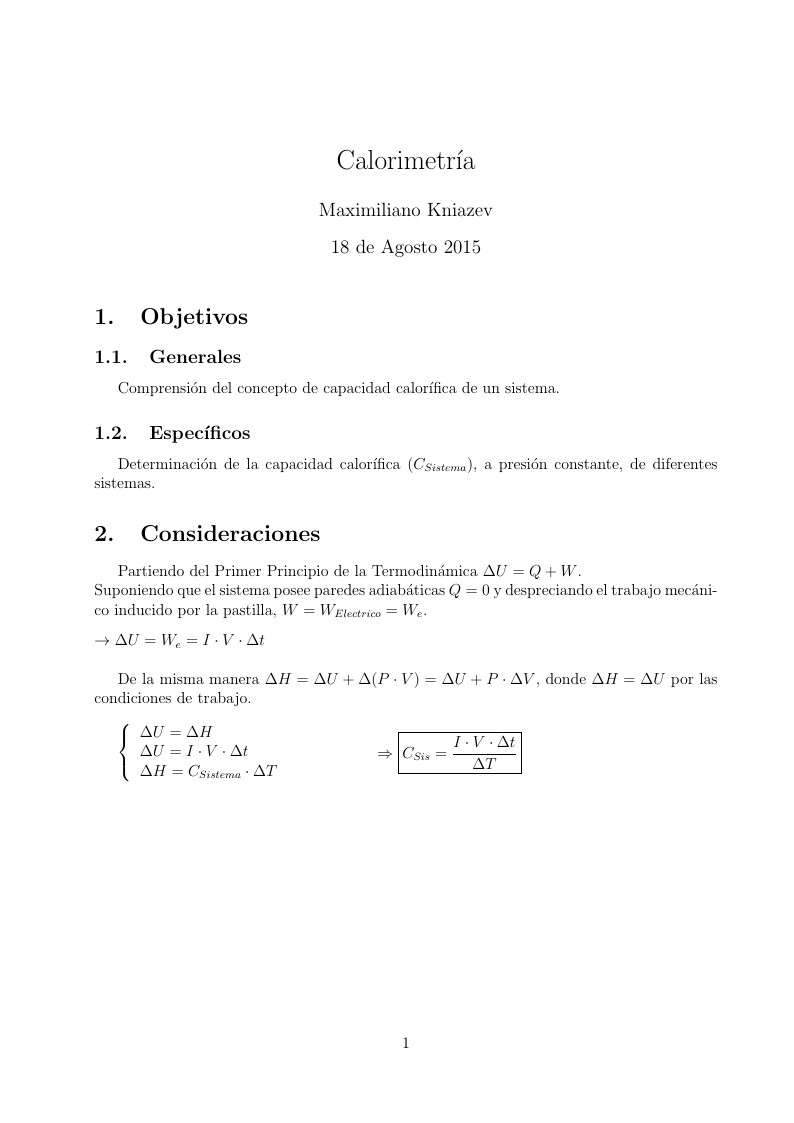
Informe de laboratorio de Fisicoquímica 101. Calorimetría.
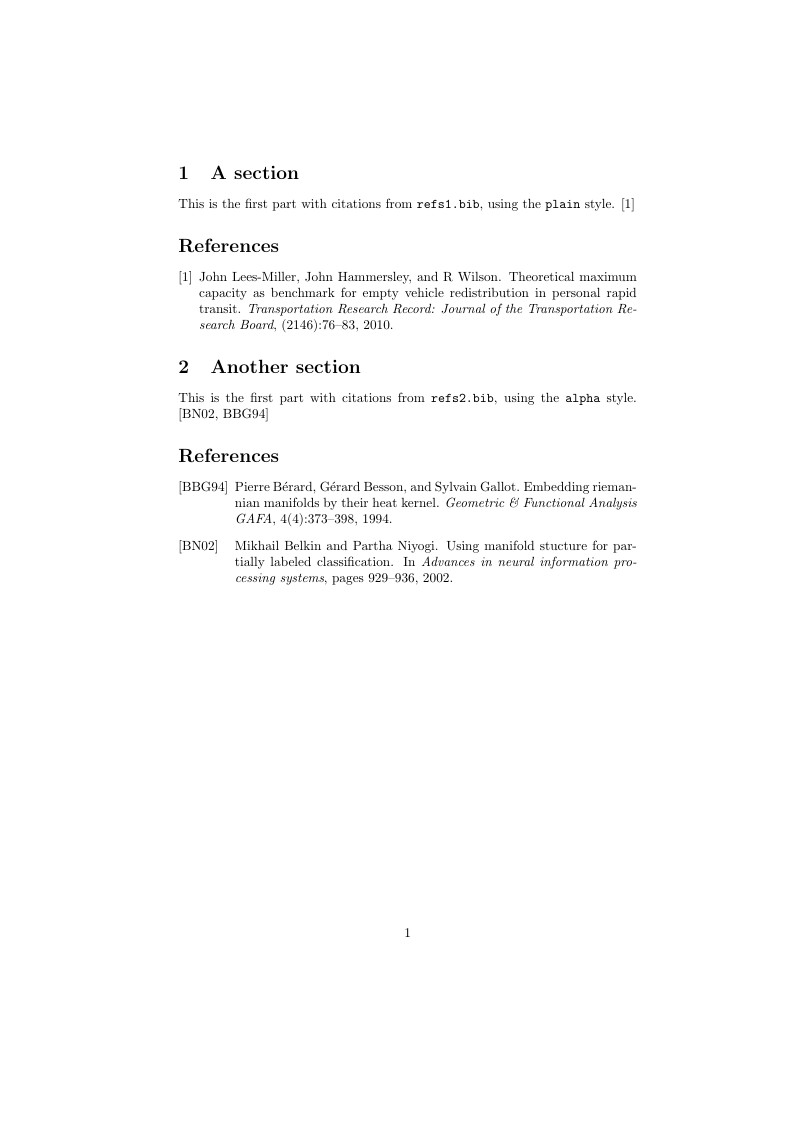
This example shows how to create multiple bibliographies/reference lists in the same document, potentially from different .bib files, using the bibunits package. For more information, see the bibunits documentation.
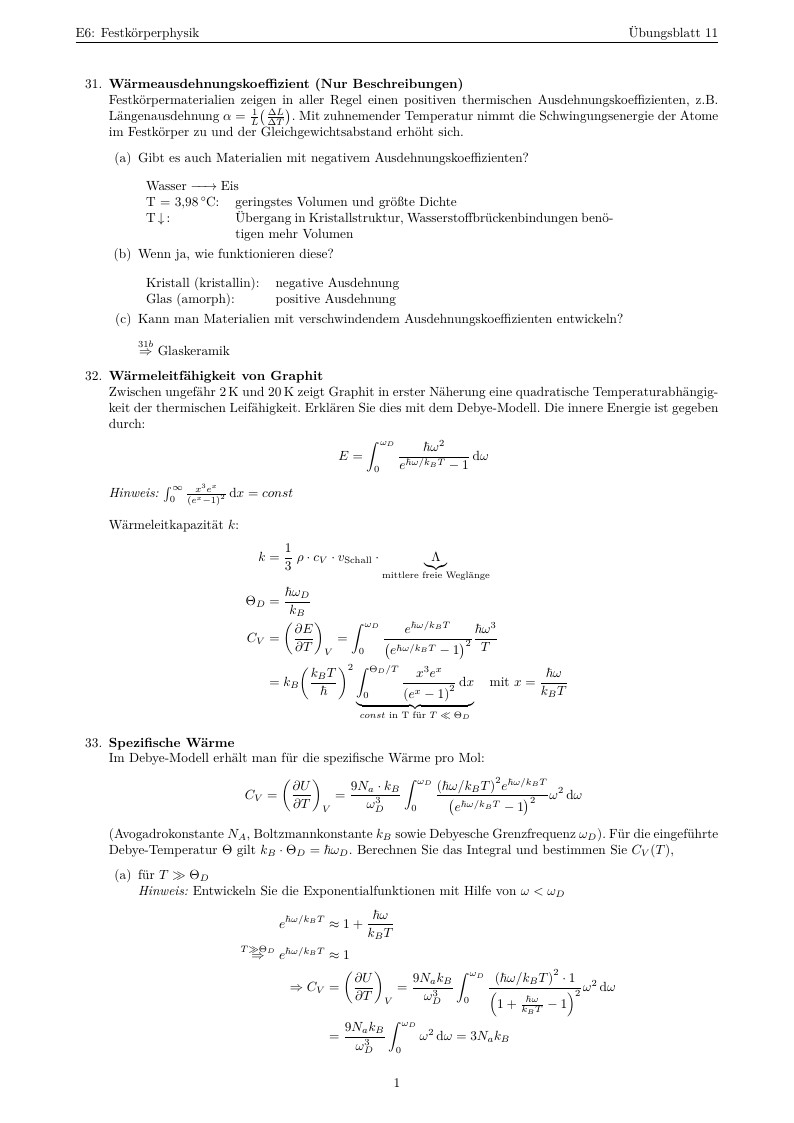
Experimentalphysik 6: Festkörperphysik
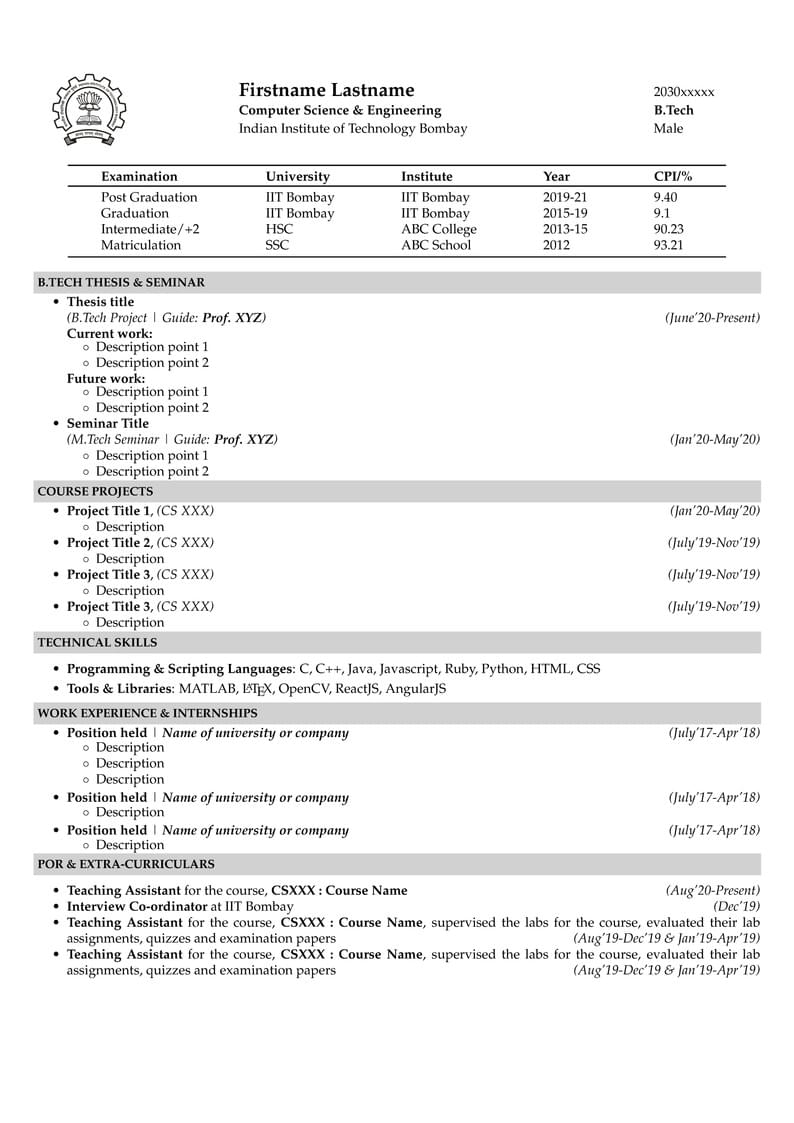
This sole purpose of this document is to help you create a draft version of your resume quickly. Hope it helps.
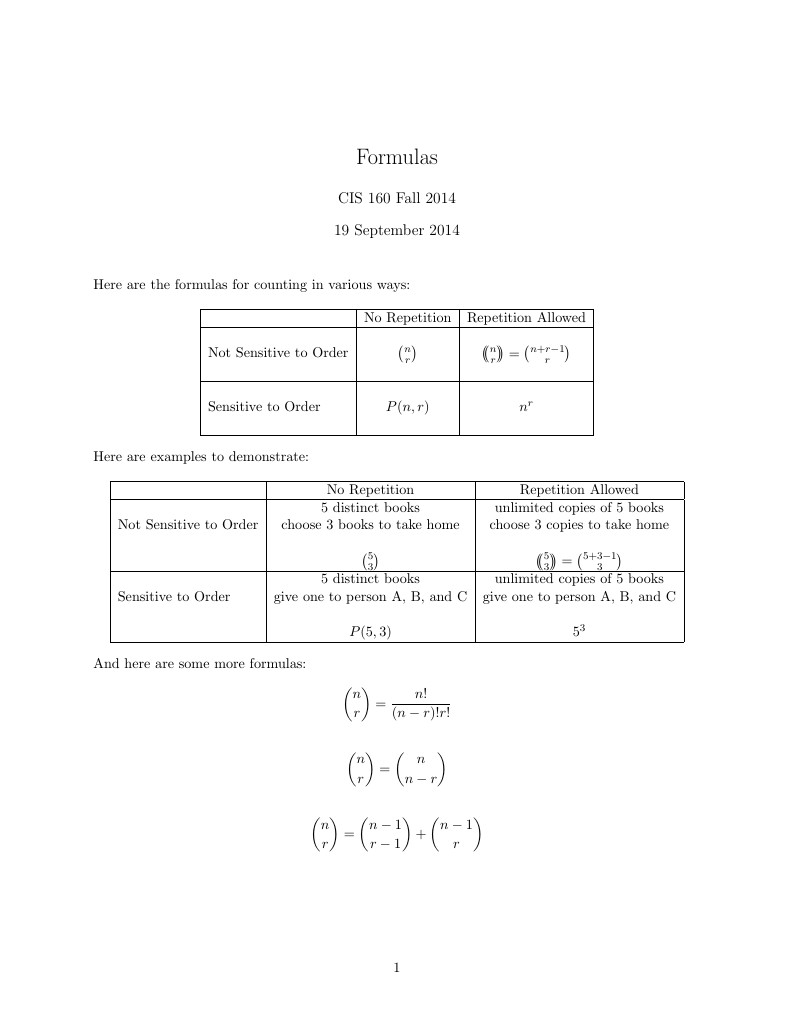
Formulas for combinations.
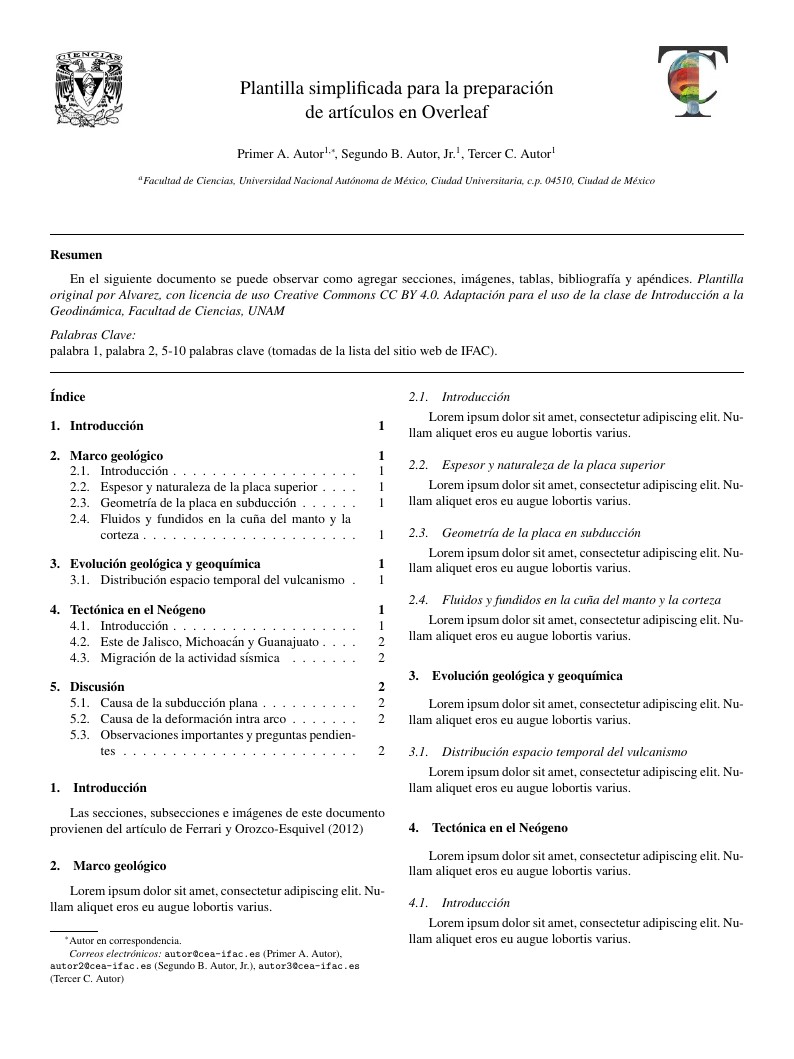
En el siguiente documento se puede observar como agregar secciones, imágenes y bibliografía Plantilla original por Alvarez, con licencia de uso Creative Commons CC BY 4.0. Adaptación para el uso de la clase de Introducción a la Geodinámica, Facultad de Ciencias, UNAM
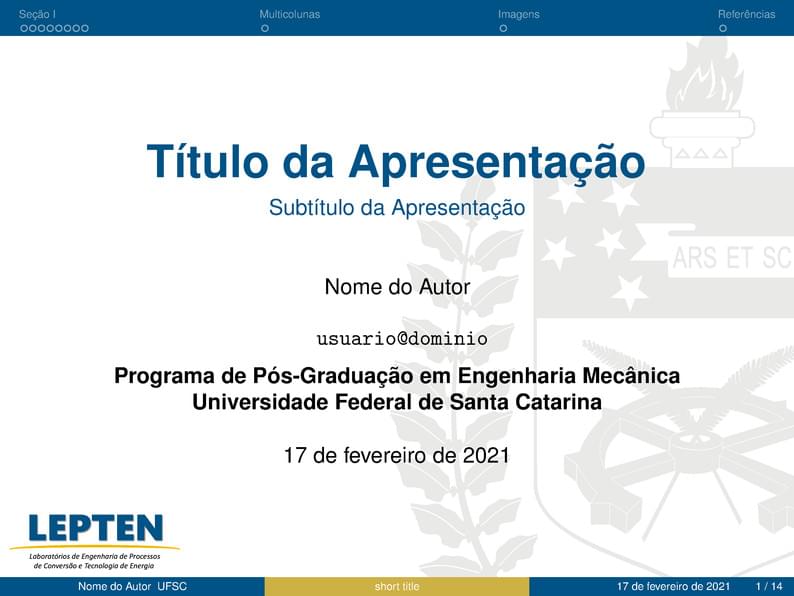
Templeate Beamer para o LEPTEN (UFSC).

La bandera del archipiélago africano de la Unión de las Comoras consta en su fondo de cuatro colores que representan a las cuatro islas del archipiélago: amarillo por Mohéli (Mwali), blanco por Mayotte (reclamada por Comoras, y que sigue perteneciendo a Francia), rojo por Anjouan (Nzwani) y azul por Gran Comora (Ngazidja). Este significado también lo tienen las cuatro estrellas, mientras que la luna menguante en el triángulo verde Palma representa a la religión musulmana, dominante. Esta bandera ha cambiado cinco veces desde que se diseñó la primera de ellas en 1963. El diseño actual se adoptó por referéndum en el año 2001. Los detalles de diseño proceden de la página web http://vexilla-mundi.com/comoros_flag.html y los colores son de la página relacionada a la bandera en Wikipedia. Se ha decidido dejar las cinco estrellas giradas en ángulo de 52 grados, tal como se muestra en algunos diseños en Internet.
\begin
Discover why over 25 million people worldwide trust Overleaf with their work.